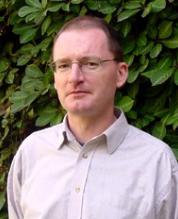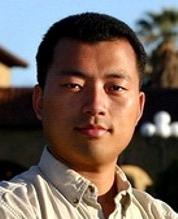About the Course
If you wish to study physics to the highest level, Oxford has everything to offer. You will receive an exceptional grounding in the foundations of modern physics, guided by academics conducting world-class research.
Physics at Oxford
There are two physics degree courses to which you can apply: a three year BA and a four year MPhys. Students hoping to continue with a career in physics or a physics-related industry should expect to complete the four year course.
The first two years are largely prescribed and are common to both BA and MPhys courses. Options are available in the later years so you can tailor your University experience towards the aspects of physics that interest you. Students who wish to focus on the more mathematical and theoretical parts can apply to a MMathPhys course at the end of their third year; it is not possible to apply to enter this course directly.
Preliminary University examinations are taken at the end of the first year. They do not count towards your final classification but a distinction in the first year is well regarded. Final examinations, which count towards your degree classification, are taken at the end of the second, third and fourth years. In addition, project work undertaken during the final year is assessed as part of your Finals mark. It is on the basis of your Finals result that the Honours Degree is awarded. For BA candidates, the second and third years are weighted roughly 41%: 59%. For the MPhys candidates, the second, third and fourth years weights are approximately 23%: 35%: 42%.
The Course and the College
At Oxford, academic responsibilities are divided between the University and the College; in this respect, physics is like other subjects at Oxford. The lectures are arranged by the University’s Physics Department and students from the different Colleges attend them together. Similarly, the laboratory work is provided by the Physics Department; and only the University may award degrees. On the other hand, the Colleges are the admitting body and weekly tutorials and other support are a College matter.
Your accommodation is arranged through the College, and most students take their meals in the College’s 17th century Hall. Your immediate social circle will probably be centred around the College and your friends will have a wide variety of academic interest, not be restricted to your own pursuit. The College has a wide variety of sports and activities, mirroring those organised at a University level. A distinguishing feature of Jesus College is its proud support of students’ extra-curricular activities and boasts a tradition of providing bursaries for small research projects, community initiatives and even adventurous travel ideas.
Tutorials
Every student has at least one tutorial a week and in the first year there are two tutorials each week. From the beginning, you should expect to demonstrate self-motivation, problem solving and critical reasoning.
Tutorials may be in pairs or small groups, but sometimes you will have tutorials on your own. Such close attention to your academic success is one of the great advantages of studying at Oxford. The fourth year needs specialist teaching so the Physics Department arranges classes with experts.
At Jesus College there are three permanent tutorial fellows in physics who are regularly joined by two or three external tutors to help cover the broad remit of the physics degree. This has helped Jesus College students achieve excellent results, regularly amongst the best in the University cohort. Their purpose is to guide you through the course, to ensure you advance at a pace of which you are capable, and to help everyone enjoy their academic emergence into the widest possible choice of career.



